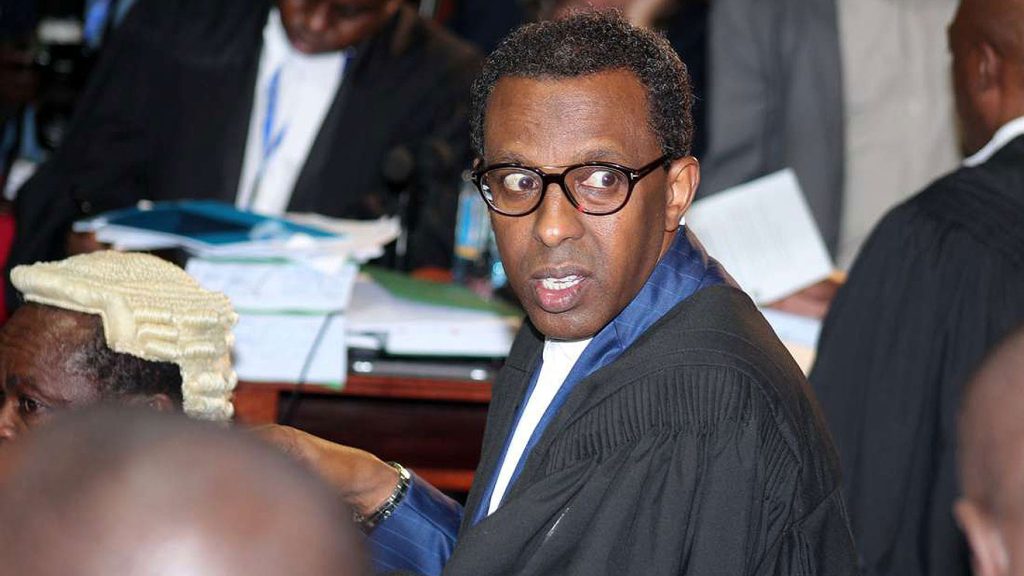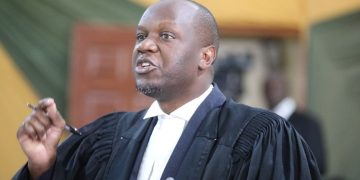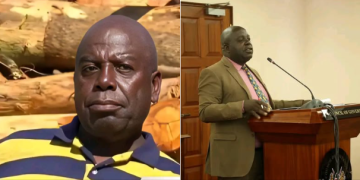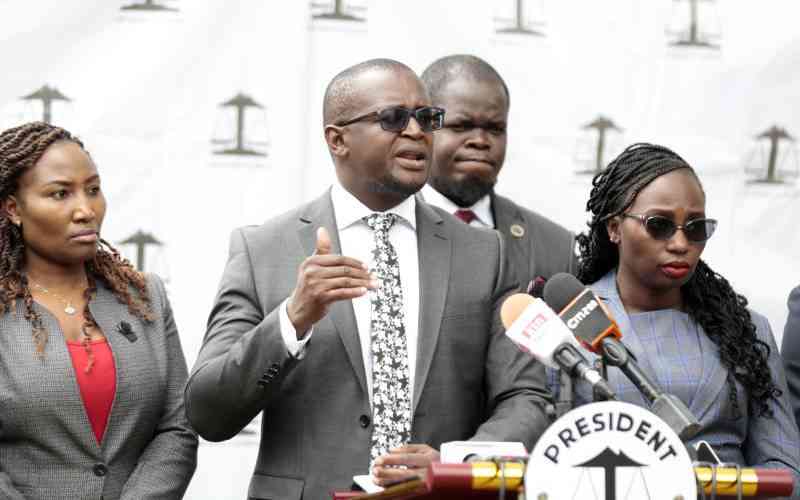The Law Society of Kenya has condemned the Supreme Court’s decision to ban Senior Counsel Ahmednasir Abdullahi and his law firm employees from filing cases before it, citing incessant attacks.
The Registrar L.M Wachira argued that this decision undermines the purpose of the Senior Counsel appearing before the institution and individuals he frequently berates in his media engagements.
“In view of the foregoing, it is the decision of this Court, that henceforth and from the date of this communication, you shall have no audience before the Court, either by yourself, through an employee of your law firm, or any other person holding brief for you,” the statement read in part.
However, LSK President Eric Theuri said the Supreme Court has irredeemably lost it on its decision.
“Every person has a constitutional right to counsel of his choice, therefore they cannot violate a consumer’s rights by dictating who should appear before them,” Theuri said.
Theuri added that the Court has no legal right to bar an Advocate duly authorized by the Law Society to practice law.
“The decision has no basis in law, is illegal and irregular,” he said.
“LSK will not allow its statutory mandate to be encroached upon by the Court and will seek an immediate retraction and apology from the Supreme Court.”

LSK Vice President Faith Odhiambo also condemned the move.
Taking to her X account, Adhiambo stated that the decision to deny audience to Senior Counsel and his law firm is an abuse of the discretionary powers granted to the court to invoke disciplinary sanctions against persons found to be in contempt.
In legal terms, Discretionary powers are the powers to exercise discretion over which the court cannot intervene.
“Having and expressing opinions is a human right enshrined under Article 33 of our Constitution which advocates, including Grand Mullah, and like all other Kenyans, are entitled to exercise,” she said.
Odhiambo also noted that views expressed on social media platforms and other channels cannot be extrapolated to fit within the meaning of contempt of Court as set out in section 28 of the Supreme Court Act.
“On our part as the Law Society, we will continue to hold our members to the high professional and ethical standards required of them, but the same will be done fairly, objectively and in accordance with the law and due process,” she said.










































